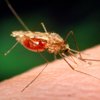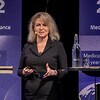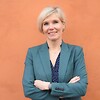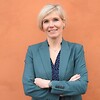Fritextsökning
Artiklar per år
Innehållstyper
-

Raised millions to develop a treatment for ´butterfly children´
Fragile as a butterfly’s wing – that’s how people living with Epidermolysis Bullosa are usually described. The Lund-based company Xinnate recently raised SEK 100 million in a new share issue to finance the development of a treatment they hope will give those affected an improved quality of life.
-

Anna Törner: “My quantified life”
“The expression ‘you can’t see the forest for the trees’ feels newly relevant in the context of wearables. One can easily get caught up in the idea that the more we measure, the more we know,” Anna Törner writes in a column.
-

Major investment in women’s health – for a more equal healthcare system
”The regional differences need to decrease and the long-term supply of midwives and other professions needs to be secured,” write Acko Ankarberg Johansson and Désirée Pethrus (both Christian Democrats), in an opinion article.
-

Anna Törner: The clinical trial – Periscope to reality
What happens to the patients in the clinical trial is not very interesting, writes Anna Törner in a column.
-

The Swedish government is to increase its investment in cancer care
The Swedish government wants to invest more in cancer and paediatric cancer care and proposes to allocate SEK 500 million per year for this purpose in the coming years.
-

CROs in drug development: "We use our expertise to speed up the process
Consultancy firms have become an increasingly important part of drug development. “It’s a trend and a business model that works, and we see no indication that it will change,” says Helena Lüning of the industry organisation ASCRO.
-

Why the world renown researcher Marc Tessier-Lavigne resigns as Stanford´s president
In mid-summer, neuroscientist Marc Tessier-Lavigne announced his resignation as President of Stanford following allegations of manipulated study data. According to the reporter Theo Baker, who first reported the story, Tessier-Lavigne “rewarded the winners and punished the losers”. Here is the background of the story which has shaken the American scientific community over the summer.
-

Anna Törner: The minute between life and death
“I have never told anyone about this day that happened more than 20 years ago. But I sometimes reflect on what happened, on what might have happened. When I try to understand why I haven’t told anyone, I find the answer: a feeling of shame. There is no forgiveness for something like this, even though it is very human to be distracted for a moment,” Anna Törner writes in a column.
-

Samuel Lagercrantz: The government’s performance in healthcare and life sciences so far
Since the change of government in Sweden, developments in the healthcare sector have shown promising signs, but the outlook in life sciences is less promising, writes Samuel Lagercrantz in an editorial.
-

A new malaria vaccine offers hope but much more research is still needed
There has long been no vaccine against malaria, but there have been breakthroughs in recent years. However, it is still unclear how we become immune to the malaria parasite, and this is a vital piece of the puzzle for creating effective vaccines, says malaria researcher Kristina Persson.
-

KI’s new President: “We need to work closer together”
A closer link between research and education and a stronger “we-feeling” are aims that Annika Östman Wernerson sets out to achieve as the new President of Karolinska Institutet. She will not give up her research entirely though. “I think it’s crucial to maintain a close presence in the business,” she says.
-

Claims of life science companies fleeing abroad is a myth according to survey
The claim that life science companies are moving abroad is exaggerated. In fact, only a tiny percentage is leaving the country, according to a survey.
-

“Everyone is screaming for talent”
Attracting talent is one of the life science industry’s major future challenges, which was one of the conclusions of the panel discussion that ended the New Horizons in Biologics & Bioprocessing conference on 15 December.
-

“We are Europe’s hotspot in life science”
The Medicon Valley Alliance has worked for competence development in life science in Denmark and Sweden for a quarter of a century. Anette Steenberg, CEO, sees the anniversary as a recognition of MVA’s explosive power.
-

Marie Gårdmark: Potential step change – EU regulators get to play with data
A new pilot from EMA is starting in September to assess wether the analysis of 'raw data' by regulatory authorities improves the evaluation of marketing approval for new medicines. Marie Grådmark writes in a column that she is looking forward to the outcome of the pilot to hopefully then understand if “in house” analyses actually will add value.
-

Anders Blanck about his 17 years at Lif: “The industry is enjoying greater public trust now"
The announcement came as a surprise to those around him, but according to the protagonist himself, the timing was excellent. Anders Blanck is now leaving Lif – a decision that has been growing for some time. “I have been pretty much married to my mission. However, I will turn 56 this autumn, and if I’m going to do something else in my professional life, now is the time,” he says.
-

BioVentureHub CEO: “Companies with a high degree of interaction achieve greater success”
For the first time since its inception, AstraZeneca’s BioVentureHub can now recruit new companies, as some of its tenants have grown significantly and are leaving the hub. This is the message from the biohub’s CEO Magnus Björsne in an interview, in which he also highlights a study that points out that companies with a high degree of interaction with other companies achieve greater success.
-

Björn Ursing: Physicians new role in AI driven healthcare
”AI could be the key we need for tomorrow’s healthcare, but it is not a stand-alone tool”, writes Björn Ursing in a column about how the role for physicians changes in the era of AI.
-

CAR-T therapies give continued hope: “Almost half of the patients have become disease-free”
When the first CAR-T therapies appeared, hopes were raised for the effective treatment for critically ill cancer patients. After a somewhat sluggish start, about 90 patients in Sweden have now been treated with this method. “Almost half of them have become disease-free, at least of those treated with Yescarta, which are the ones I know best,” says Gunilla Enblad, Chairman of the national working group for CAR-T treatment.
-

Stockholm aims at becoming one of the world’s top life science regions
Regional Chair for Finance, Irene Svenonius (M), believes that Stockholm can realise the goal of becoming one of the world’s top 5 regions in life science by 2025. One step on the way to achieve this is by hosting a world-leading congress in medtech.
-

Anna Törner: Success requires bold decisions!
“Doing things right is fine, but doing the right things as soon as possible is even better”, writes Anna Törner in a column.
-

Marie Gårdmark: Big data evidence generation drives change in the EU regulatory system
Rapid developments in technology have led to the possibility for the generation and analysis of vast volumes of data. Will the availability of big data lead to fundamental changes to the regulatory system? In a column Marie Gårdmark, CEO and Senior Consultant at RegSmart Life Science, develops her views on this subject.
-

Vaccinforskare om danska stoppet: "Ingen visad koppling till proppar"
Sverige fortsätter att vaccinera med Astra Zenecas covidvaccin när flera andra länder pausar distributionen efter uppgifter om möjliga allvarliga biverkningar. Och Sverige gör rätt, menar vaccinforskaren Ali Harandi.
-

Vinnova finansierar innovation i spåren av corona
Sjuk verksamheter inom vårdsektorn tilldelas sju miljoner kronor för bland annat studier om covid-19-behandling med stamceller och framtagning av återanvändingsbara andningsskydd.